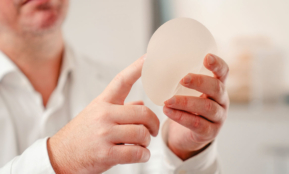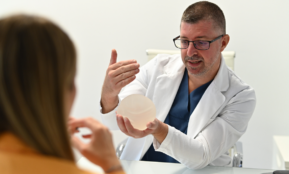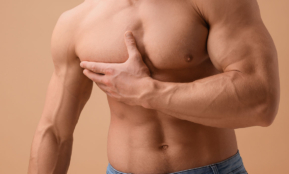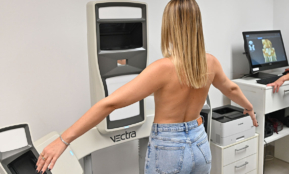Aesthetics
Face
The most modern facial treatments help you look younger, more elegant and happier.
Body
Feel comfortable in your body and correct sources of discomfort.
Chest
Make your wish for a better appearance come true and restore your self-confidence with aesthetic correction.
Hair and scalp
Minimally invasive solutions for hair loss and a natural look.
Issues
Find solutions to some of the most common aesthetic problems.
Treatments
Surgery
Treatments

Hair and scalp mesotherapy
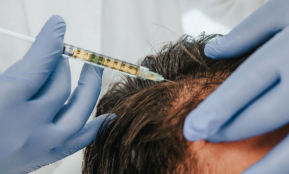
Thinning hair therapy with your own blood

Trichotest – DNA analysis of hair loss and baldness

Hair loss in women – causes and how to prevent it
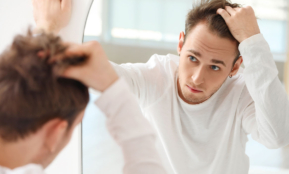
Hair loss in men – causes and how to prevent it
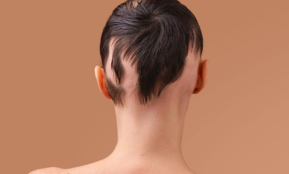
Alopecia – hair loss
FACE
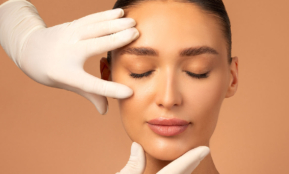
BODY
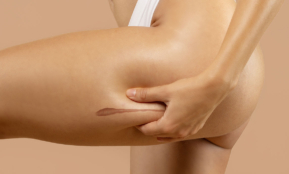
Implantology Center
Different methods of solving the problem of missing one or more teeth.
Prosthetics
The most common solution in cases of functional or aesthetic tooth damage.
Aesthetic Dentistry
Harmonious tooth shaping and tooth color correction according to your wishes.
General Dentistry
Modern and timely diagnostics, treatment and dental hygiene are the key to the health of your teeth.
Issues
Find solutions to some of the most common aesthetic problems.
About us
Locations
Causes of wrinkles
Here are some reasons why wrinkles appear:
-
Loss of elasticity
As we age, our skin loses elasticity. The elasticity of our skin depends on the presence of collagen and elastin, proteins that keep our skin firm and elastic. As the production of these proteins decreases with age, our skin becomes less elastic, leading to the appearance of wrinkles.
-
Reduced hydration
Dry skin can look older. Loss of moisture and hydration of the skin can cause increased visibility of wrinkles.
-
Sun exposure
Excessive sun exposure can damage the skin and cause premature aging. UV radiation can trigger the formation of free radicals in the skin, which damages collagen and elastin and causes wrinkles.
-
Smoking and alcohol
Smoking and alcohol consumption can negatively affect the quality of your skin. Nicotine constricts blood vessels in your skin, which reduces the flow of blood and nutrients. Alcohol can also dry out your skin and cause inflammation.
-
Facial expressions
Repetitive facial expressions, such as laughing, frowning, or raising your eyebrows, can cause dynamic wrinkles. These wrinkles are the result of facial muscle contractions during expressions.
-
Genetics
Hereditary factors play a role in how quickly and how many facial expressions will develop. Some people have a genetic predisposition to fewer or more wrinkles.
-
Stress
Chronic stress can increase the production of cortisol, a stress hormone, which can negatively affect the skin and promote the formation of wrinkles.
-
Lack of proper skin care
Improper skin care, including lack of hydration, use of appropriate products and sun protection, can accelerate the process of wrinkle formation.
Wrinkle prevention
Although wrinkles cannot be completely avoided because they are a natural consequence of aging, proper skin care, a healthy lifestyle, and protection from harmful factors such as the sun and smoking can significantly slow down their formation and reduce their visibility.
Wrinkle prevention includes a series of steps and habits that can help you preserve the youthful appearance of your skin and slow down the aging process. Here are some tips on preventing wrinkles:
-
Hydration
Keeping skin hydrated is key to preventing wrinkles. Use quality moisturizers and drink enough water to maintain the skin's natural moisture.
-
Proper skin care
Choosing the right skin care products is important for maintaining skin health. Cleanse your skin daily and use products suitable for your skin type and go for treatments suggested by a medical cosmetologist or dermatologist.
Different types of pine
-
Static wrinkles
These wrinkles are present even when the facial muscles are not active. For example, wrinkles around the eyes (also called "laugh lines") and wrinkles on the forehead fall into this category.
-
Dynamic wrinkles
These wrinkles appear when facial muscles contract, such as the wrinkles between the eyebrows when we frown or the wrinkles around the mouth when we smile.
-
Sun wrinkles
Prolonged exposure to the sun can cause skin damage and the formation of sun lines. These wrinkles usually appear on areas that have been exposed to the sun, such as the face, neck and arms.
Wrinkles and nutrition
Nutrition plays an important role in maintaining skin health and preventing wrinkles. Proper nutrition can provide the skin with the necessary nutrients and antioxidants that help protect it from the harmful effects of the environment and the aging process. Here are some key elements regarding nutrition and wrinkles:
-
Antioxidants
They help neutralize free radicals that can damage skin cells and cause wrinkles. Foods rich in antioxidants include fruits (especially berries, citrus fruits, and apples), vegetables (spinach, kale, broccoli), nuts, and seeds.
-
Various vitamins
play a key role in skin health. Vitamin C stimulates the production of collagen, which is important for skin firmness. Vitamin E protects the skin from UV damage, while vitamin A helps maintain healthy skin tissue.
-
Omega-3 fatty acids
found in fish like salmon, walnuts, and flaxseed, can help keep skin hydrated and reduce inflammation.
-
Zinc
participates in the processes of repair and renewal of skin cells (fruits, seeds, whole grains and poultry meat).
-
Proteins
are important for the production of collagen, which makes skin firm and elastic. Include poultry, fish, beans, peas and dairy products in your diet to ensure you get enough protein.
-
Hydration
Regular water consumption is key to maintaining skin hydration.
Wrinkles at different stages of life
Wrinkles develop throughout life, and their appearance and causes can vary depending on a person’s stage of life. Here’s how wrinkles can appear and change throughout different stages of life:
-
Childhood
In childhood, the skin is usually smooth and without visible wrinkles. Children are less exposed to harmful environmental influences, so their skin often shows no signs of aging.
-
Adolescence
During adolescence, young people may experience acne breakouts, but wrinkles do not usually appear at this age. Preventing harmful habits such as sun exposure and smoking during this period can help maintain healthy skin.
-
Young adulthood (20-30 years old)
During this period, the skin usually remains smooth and free of deep wrinkles. Wrinkles may begin to appear around the eyes or on the forehead due to facial expressions and repetitive muscle movements.
-
Middle age (30-50 years)
During middle age, wrinkles begin to deepen and become more visible. Gravitational and sun-induced wrinkles may become more noticeable. During this period, various anti-aging treatments and creams are often used to slow down the aging process.
-
Late age (50+ years)
In later life, wrinkles become deeper and the skin loses its elasticity. Wrinkles around the eyes, lips, forehead and chin can become more pronounced. The loss of collagen and skin elasticity becomes more significant during this period.
It is important to note that genetics, lifestyle and skin care play a key role in how wrinkles develop throughout life. Prevention is key to maintaining healthy skin throughout life, including sun protection, avoiding smoking and eating a healthy diet. Also, using appropriate skin care and aesthetic treatments can help maintain youthful-looking skin even into old age.
BLOG SUGGESTION


